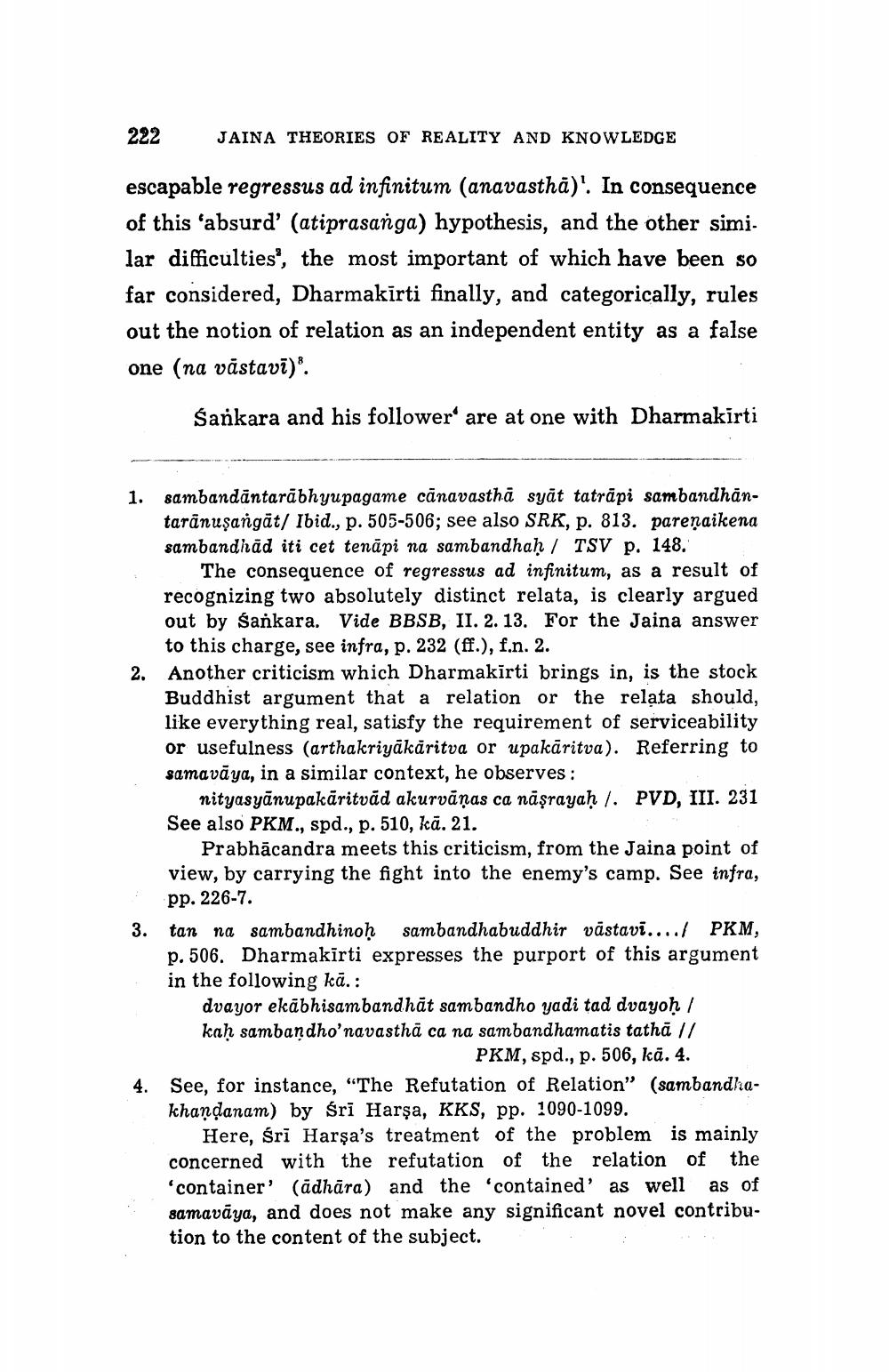________________
222
JAINA THEORIES OF REALITY AND KNOWLEDGE
escapable regressus ad infinitum (anavasthā)'. In consequence of this 'absurd' (atiprasanga) hypothesis, and the other simi lar difficulties', the most important of which have been so far considered, Dharmakīrti finally, and categorically, rules out the notion of relation as an independent entity as a false one (na västavi).
Sankara and his followers are at one with Dharmakirti
sambandāntarābhyupagame cānavastha syāt tatrāpi sambandhantarânuşangāt/ Ibid., p. 505-506; see also SRK, p. 813. pareņaikena sambandhad iti cet tenāpi na sambandhaḥ / TSV p. 148.
The consequence of regressus ad infinitum, as a result of recognizing two absolutely distinct relata, is clearly argued out by śankara. Vide BBSB, II. 2. 13. For the Jaina answer to this charge, see infra, p. 232 (ff.), f.n. 2. Another criticism which Dharmakīrti brings in, is the stock Buddhist argument that a relation or the relata should, like everything real, satisfy the requirement of serviceability or usefulness (arthakriyākāritva or upakāritva). Referring to samavāya, in a similar context, he observes:
nityasyānupakāritvād akurvāṇas ca nāşrayaḥ 1. PVD, III. 231 See also PKM., spd., p. 510, kā. 21.
Prabhācandra meets this criticism, from the Jaina point of view, by carrying the fight into the enemy's camp. See infra, pp. 226-7. tan na sambandhinoḥ sambandhabuddhir vāstavi.... PKM, p. 506. Dharmakirti expresses the purport of this argument in the following kā.:
dvayor ekābhisambandhāt sambandho yadi tad dvayoḥ / kaḥ sambandho'navasthä сa na sambandhamatis tathā //
PKM, spd., p. 506, kā. 4. 4. See, for instance, "The Refutation of Relation" (sambandhakhandanam) by Śrī Harşa, KKS, pp. 1090-1099.
Here, śri Harsa's treatment of the problem is mainly concerned with the refutation of the relation of the "container' (adhāra) and the "contained' as well as of samavāya, and does not make any significant novel contribution to the content of the subject.




